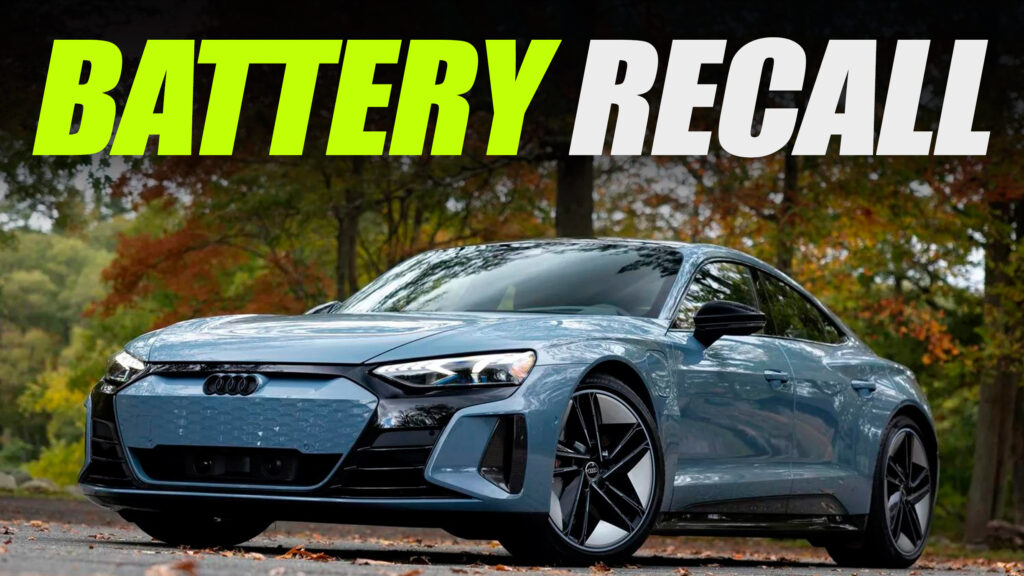- Audi first recalled e-tron GT models have a batter issue in March.
- This latest recall involves 6,499 examples of Audi’s sexy electric sedan.
- Owners are being urged not to charge their vehicles beyond 80% capacity.
Shortly after Porsche was forced to recall almost 28,000 Taycans in the United States due to a potential battery short circuit, Audi did the same with the mechanically-related e-tron GT and RS e-tron GT models, and for the same reason.
Audi has revealed that 2022-2024 e-tron GT and RS e-tron GT models are equipped with high-voltage batteries from LG Energy Solution which have modules that may short circuit and are at an increased risk of catching fire. Owners of impacted vehicles won’t receive any kind of warning if a short circuit occurs.
Read: Porsche Taycan Recall Means You’re Stuck Charging To 80% Until 2025
This recall is an expansion of two battery-related recalls announced for the e-ton GT family back in March. At the time of the March recalls, a total of 1,042 models were impacted, and Audi replaced all high-voltage battery modules after a period of analysis. However, Audi has since determined that the individual cells in the battery modules can change throughout their lifetime and require continuous monitoring.
With this in mind, impacted EVs will be equipped with onboard diagnostic software that can detect any future high-voltage battery module data anomalies. If anything untoward is found, the high-voltage battery will be replaced free of charge.

A total of 6,499 vehicles in the US are embroiled in this latest recall. These consist of 4,980 e-tron GTs built between March 26, 2021, and December 22, 2023, as well as 1,519 RS e-tron GTs assembled from March 18, 2021, to February 15, 2024. Audi has not received any customer complaints or been notified of any injuries, crashes, or fires related to the issue.
Just like in the case of the recall involving the Porsche Taycan, the diagnostic software for the two Audi EVs won’t be ready until the first quarter of 2025. In the meantime, owners of vehicles with online data systems enabled will be contacted if a potentially critical battery module is detected and advised to only charge the pack to 80% until the module can be replaced.
Owners of e-tron GT and RS e-tron GT models without these online systems will be asked to take their vehicle to a dealer where a diagnostic test will be performed and, if necessary, the battery module assemblies will be replaced.




